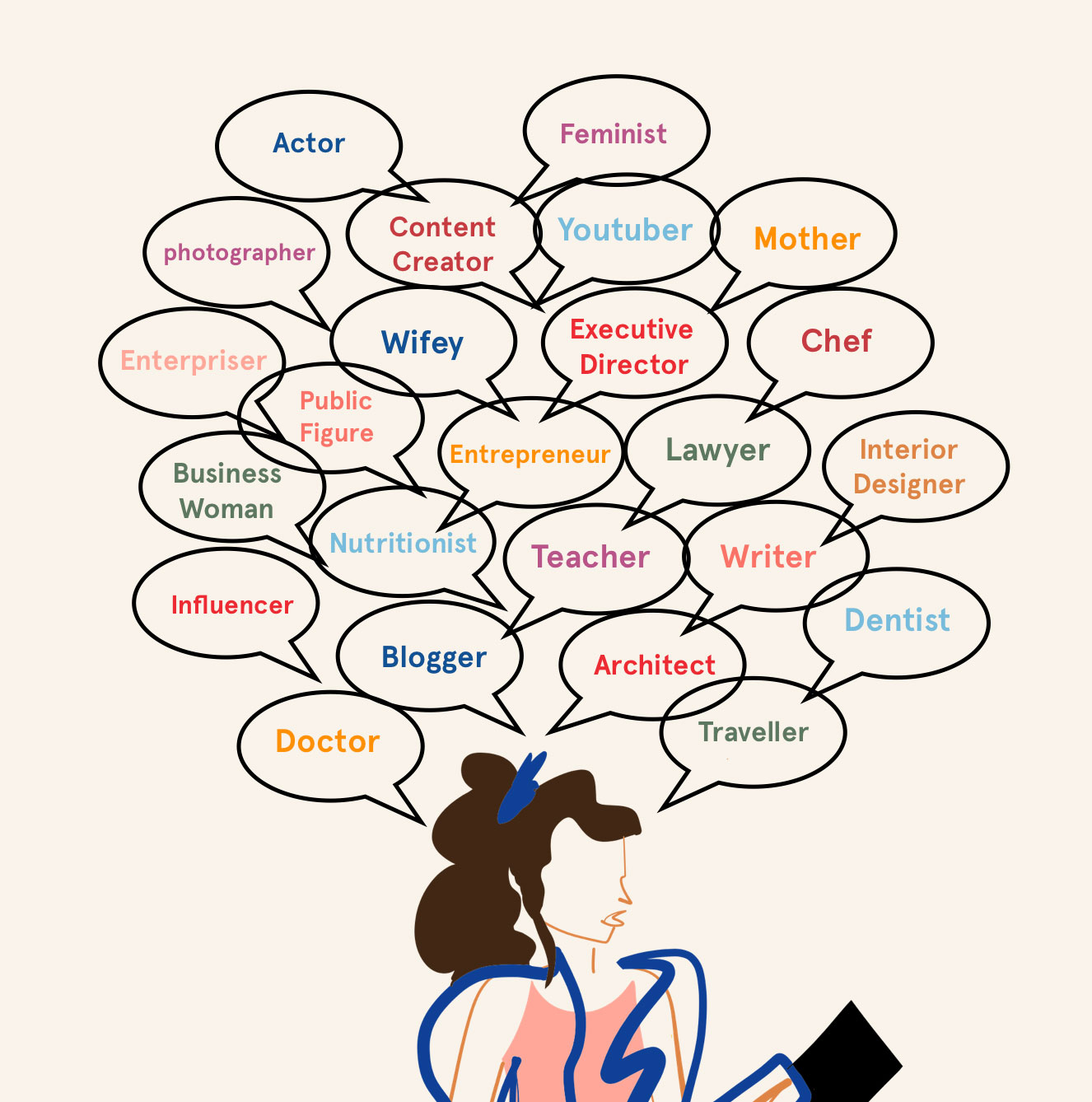An identity crisis is something that many people experience at some point in their lives. You may be wondering what it is and if you’re experiencing one.
An identity crisis can happen when someone changes jobs, moves to a new city, or has an accident that causes them to lose their abilities and the person they once were.
This blog post will walk you through what an identity crisis is, what possibly causes it, how to identify one and how to cope with one!
Contents
- 1 What Is An Identity Crisis?
- 2 What Causes An Identity Crisis?
- 3 Symptoms Of An Identity Crisis
- 4 Types of Identity Crisis
- 5 Other Types Of Identity Crisis
- 6 How To Cope With An Identity Crisis
- 7 Take Care of Yourself
- 8 Talking To A Professional
- 9 Therapies For Identity Crisis
- 10 Take Your Time
- 11 Conclusion
What Is An Identity Crisis?

An identity crisis is a time when you feel like you don’t know who you are or what you want in life. It can be caused by many things, such as changes in your life, stress, or feeling like you’re stuck. It feels like feeling lost, confused, and uncertain about the future.
What Causes An Identity Crisis?
There is no one answer to this question because everyone’s identity crisis is different. However, some things that might cause an identity crisis include:
- Changes in your life such as graduating from school,
- Moving to a new city, or starting a new job;
- Stress from things like a difficult relationship, money problems, or health issues; and
- Feeling stuck in your life and not knowing what you want to do next
Symptoms Of An Identity Crisis

If you think that you’re going through an identity crisis, there are a few signs and symptoms that might help identify it:
- Feeling lost or confused about your future;
- Not knowing who you are or what you want in life;
- Having a hard time making decisions;
- Struggling to connect with people who are important to you;
- Uncertainty about decisions in life such as what job to take,
- What city to live in, or what school you want to go to; and not feeling like yourself anymore
- Experiencing changes in your mood, such as feeling more anxious, depressed, or angry than usual;
NOTE: An identity crisis can feel like the end of the world when it’s happening. It is important for people who are experiencing an identity crisis or mid-life crisis to know that they are not alone.
Types of Identity Crisis
There are three different types of identity crises:
- “Generativity vs Stagnation”
- “Flux vs Shift”
- The mid-life crisis
They all involve similar symptoms but have different causes and effects.
Generativity vs Stagnation
A type of identity crisis that teenagers and young adults might experience. This is when you’re trying to figure out how to become an adult and make your mark on the world.
Flux vs Shift
It is a type of identity crisis that can happen at any time in life. But it’s more common in older adults. This is when you feel like your life is shifting and changing too quickly. So, it can be scary to think about what the next stage of life might hold.
The Mid-life Crisis

This type of identity crisis happens in adulthood when people realize they’re no longer young anymore. It can make them wonder who they are now as adults. This often causes people to re-evaluate their lives and make big changes.
Other Types Of Identity Crisis
There are other types of identity crisis that don’t fit into these three categories, such as:
A cultural identity crisis
This happens when you feel like your culture is changing and you don’t know how to connect with it anymore.
An ethnic identity crisis
This happens when you feel like your ethnicity is important to who you are, but you’re not sure how to connect with it.
A religious identity crisis
This happens when your religion is important to you, but you’re not sure how to connect with it.
How To Cope With An Identity Crisis
There are many ways to cope with an identity crisis, and it will be different for everyone. The most important thing is to find what works for you and stick with it. Here are some suggestions to help get you started:
Think about the things that are important to you
- What makes you happy?
- Where do your interests lie?
- What is most important in life for you right now?
- How can these be incorporated into your identity crisis or decision?
Talk It Out
Talk with someone who understands what it’s like to go through an identity crisis. This could be a loved one or someone who can relate to what you’re going through, such as a counselor or therapist.
Go On a Trip
Take a trip that gives you some time to think and reflect. This can help with figuring out what is important for your identity crisis or decision. It can give you a new perspective on things as well.
Do Something New and Exciting
Do something new and different! Try something like:
- Take up a fun, relaxing hobby;
- Take a trip somewhere you’ve never been before;
- Volunteer for a cause that matters to you; or
- Join some groups related to activities and hobbies, such as sports teams or book clubs
Journaling
Write about your thoughts and feelings in a journal. This is helpful for many people because it provides an outlet so they don’t have to worry about speaking their mind until later on.
Self-help strategies
- Go for a walk or do some exercise
- Get back into your routine as much as possible
- Engage in activities that you enjoy
Make Yourself Feel Good
Do things that make you happy and feel good about yourself.
Such as spending time with friends and family, getting involved in an activity that you love, or simply relaxing and taking some time for yourself.
This can help clear your mind and put you in touch with how you’re feeling on the inside when it feels like nothing is making sense anymore.
Don’t Rush Into Making Big Decisions
It’s important to take your time in making decisions about your identity crisis. Don’t rush into anything that might have long-term consequences. This is a time for exploration and figuring out what you want for yourself.
Take Care of Yourself

It’s also important to take care of yourself during this time. This means eating right, getting enough sleep, and finding ways to relax. You’ll be better able to deal with your identity crisis if you take care of yourself physically first.
NOTE: It’s important to remember that you’re not alone in going through an identity crisis. Many people have been in your position and there are ways to cope with it. If you feel like you can’t do it on your own, don’t hesitate to reach out for help from a professional.
Talking To A Professional
An identity crisis can be a difficult time, but there are ways to cope with it. You might find it helpful to talk to someone who understands what you’re going through, continue doing things that make you feel like yourself, and take your time when making decisions.
If an identity crisis is negatively impacting your life, it might help to talk to a professional such as a therapist or counselor about what’s going on with you. They can help figure out the best ways for you to cope with your feelings and move forward in your life.
Therapies For Identity Crisis
There are many different types of therapies and counseling options you can choose from. These include:
Psychoanalytic Therapy
It is an intensive process that includes:
- Self-examination,
- Exploring emotions and thoughts through free association,
- Uncovering hidden motivations for behavior,
- Examining childhood experiences that contribute to the formation of adult personality
Some forms may include: supportive therapy (psychoanalysis), psychodynamic therapy, brief or middle phase (psychodynamic therapy), long-term (psychoanalysis).
Existential Therapy
It focuses on the concept of “existence” and helps people ask questions about their lives, giving them a better understanding of themselves. It is all about being aware that life has meaning to it.
Family Therapy
The family plays an important role when someone has an identity crisis so it’s often recommended that family therapy be a part of the treatment plan. This type of therapy can help family members understand what the person is going through, provide support to them, and develop strategies for coping with the crisis.
Humanistic/Person-Centered Therapy
It aims to increase people’s self-awareness and help them develop a more positive sense of self. It centers around the belief that people are capable of change and growth if they are given the right environment.
Art Therapy
This type of therapy uses creative expression as a way to explore emotions and thoughts. It might involve painting, drawing, sculpting, or any other form of art that may represent how the person is feeling.
Psychotherapies
- Cognitive Behavioral Therapy (CBT) – helps people address their emotions and anxiety about the future;
- Dialectical Behavioral Therapy (DBT) – teaches skills for coping with emotional problems, including stress management, distress tolerance, emotion regulation, and interpersonal effectiveness;
Other Types Of Therapy

- Meditation and mindfulness practice to help with stress management;
- Music therapy is used as a way to feel more connected to your emotions;
- Play therapy can be beneficial when you want to focus on your child’s thoughts and feelings;
- Writing therapy can be used to express emotions in a non-verbal way.
NOTE: You must find the right type of therapy or counselor for yourself when it comes to identity crisis treatments. Not all therapies will work, so take some time to figure out what might help best with coping with an identity crisis.
Take Your Time
While it’s important to figure out what you want for yourself during an identity crisis, don’t rush into any decisions that could hurt your life in the long run. This is not the time to change everything about yourself or make big changes without thinking through all of the consequences first.
Conclusion
It’s okay not to have all the answers and figure everything out right away. You will get through this difficult time, and you will come out stronger on the other side. Remember that you are not alone in this.
Many people have gone through an identity crisis at one point or another in their lives, but it doesn’t have to define you. With time and patience, there are many different ways of coping with this difficult period so that you can move forward stronger than ever.
If you are looking for affordable Online Counseling MantraCare can help: Book a trial therapy session


